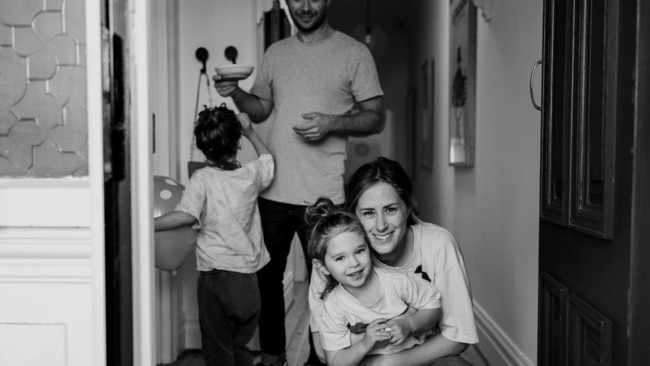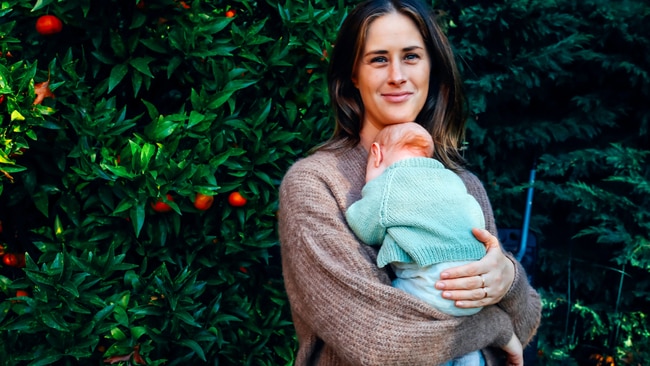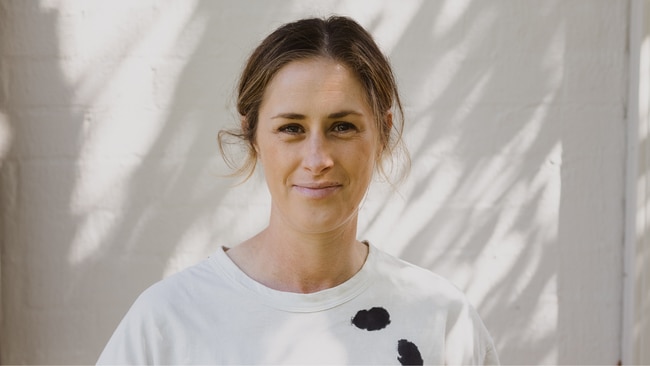Infertility is a team sport, and it's time to change the narrative on one-sided education
After all, it takes two to tango

Fertility
Don't miss out on the headlines from Fertility. Followed categories will be added to My News.
Jess Rosenberg wants to even the playing field in fertility education. About half of all infertility cases are caused by a 'male factor' infertility issue, so why do women default to fixing themselves first?
A close friend recently shared that she and her husband had been trying for a baby for over six months but was having no luck. As she was nearing 40, she booked in with a qualified health practitioner pretty quickly.
She was keen to know what was going on what her options would be. She attended her initial appointment alone, and after a series of time-consuming, invasive (and expensive) tests, she was informed everything looked good on her end.
It was only at this point she was advised to explore her husband’s fertility. And you can imagine how this story unfolds. Fertility issues can be the result of either partner, so why do we look to ‘fix’ ourselves first?
Like what you see? Sign up to our bodyandsoul.com.au newsletter for more stories like this.
Why is it so one-sided?
With physicians dedicated to going deep into women’s fertility, are our partners afforded the same education and focus on their reproductive journey? After all, it takes two to tango, at the very least.
Over at moode, we asked our audience of women on a reproductive health mission "who in the relationship is in charge of your assisted fertility appointments?" and 100 per cent of responders answered, "me, obviously." Those two words tell a full story.
Yet about 50 per cent of all infertility cases are caused by a ‘male factor’ reproductive issue. Male infertility can be the result of anatomical or genetic abnormalities, trauma, infections or disease leading to low sperm count, sperm blockages or abnormal sperm function.
It’s stressful on everyone, and according to research can significantly impact intimate relationships.

What holds men back?
As Christopher Scanlon told the Sydney Morning Herald, “men are notoriously slow to seek medical help for standard complaints and add in the cultural baggage that fertility is linked to male identity, it’s not surprising that men are reluctant to take the first step.”
The Australian Family Physician Journal recommends a male fertility evaluation should occur simultaneously with the evaluation of the female partner. But according to research, this is not performed in at least 18 per cent of cases.
Our audience wasn’t surprised by this finding. When asked if health practitioners were routinely exploring women’s fertility before their partner’s, we received a resounding "yes" in response.

A missed opportunity
According to research conducted by the Australian Family Physician Journal, by failing to conduct a thorough examination of the male patient,“One not only compromises the fertility prognosis of the couple but also misses an opportunity to improve health outcomes in male patients."
The research emphasizes "Male infertility is associated with poorer overall health, increased cancer risk and decreased life expectancy. Therefore… GPs have an important role in maximising the fertility potential and improving the overall health of the male patient.”
This hyperfocus on female responsibility for fertility outcomes is a tale as old as fertile time. And it can feel as though we bear the brunt of the storm when it comes to fixing the problem.

One-sided education and daily reminders
Cycle tracking, ovulation timing, The Pill taking (and ceasing), hormone injecting, invasive ultrasounds and a bevy of specialists with treatment plans, concoctions and boxes full of pills are just the tip of the iceberg when it comes to fertility support.
For women, early reproductive health education has a hard femme focus too. Cast your mind back to school sex ed, where learning about your body was taught alongside how not to get pregnant.
Were our male peers exploring reproductive health and conception along with their ‘Welcome To Puberty, 101’ class too? The result of this one-sided education has been a lifetime of health support focused on addressing the female factor first.
Perinatal Counsellor Gemma Smith notes “At the moment there’s a real movement for partners to get educated.” Which is great, as there’s a heap of evidence-based fertility treatments and resources to specifically support male fertility too.

Room to change the narrative
Fertility is a team sport, and it feels like we have enough information to support a more equitable sharing of the load when it comes to fertility management. We just might need to rewrite early sex education to include men in the story, and remind mainstream health care to equally consider both sides of the baby-making fence when initially addressing infertility.
Sounds easy enough, right?
Jess Rosenberg is a Naturopath in the making (Dip.HSc), Melbourne mother of three and founder of moode- fertility, unfiltered. Follow her on instagram here.
Originally published as Infertility is a team sport, and it's time to change the narrative on one-sided education


